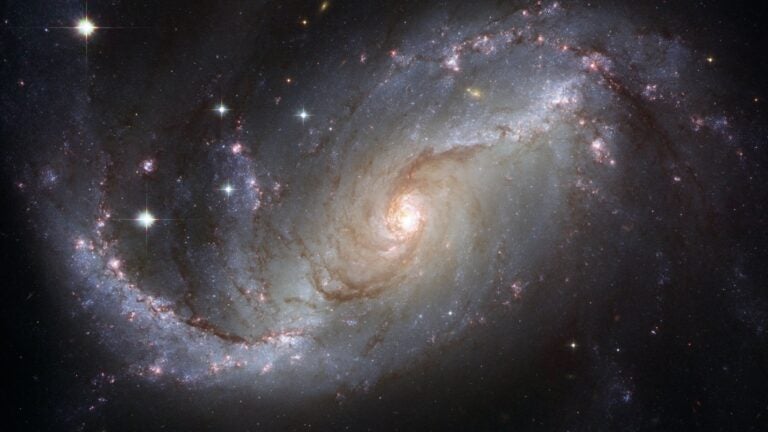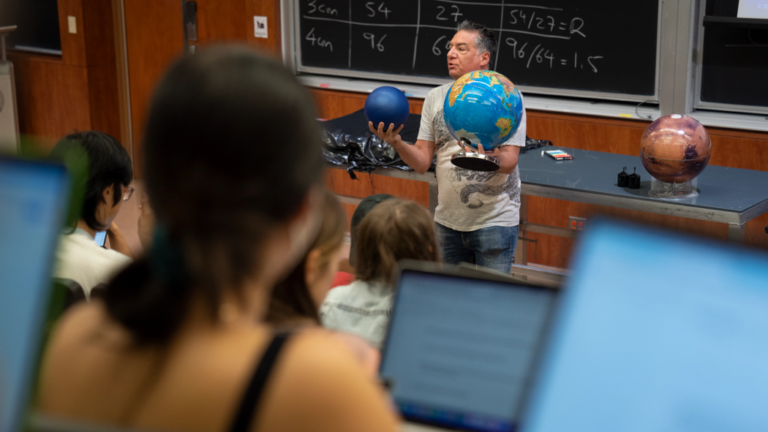Welcome to Physics and Astronomy
Undergraduate
For undergraduate students, we offer majors in Physics, Astronomy, Biophysics, and a joint Physics/Computer Science program. We also offer minors in Physics and Astronomy.
Graduate
For graduate students, we offer a Ph.D. in Physics. If you are a prospective graduate student, please take a look at the Ph.D. section for all the information on application to our Ph.D. program.
Research
Physics and Astronomy are both going through revolutionary times mirrored by the research programs in the department, which range from theory of High Energy Physics, Condensed Matter Physics, to Cosmology. Large Scale Computation is an important field with several state-of-the-art facilities available to students and faculty. Emerging areas of research in our department include the rapidly developing fields of Quantum Information Science and Physical Biology. Biological Physics is where the quantitative skills of physicists address important problems coming from biological systems.
Your Major & Minor
The Department of Physics & Astronomy offers majors and minors in five different subject areas. It also offers several different levels of introductory courses for students with majors in other departments.
Driving Quantum Matter Out-of-Equilibrium
The Physics and Astronomy Colloquium Series welcomes, Prineha Narang, from Yale on Monday, March 10, 2025. Our colloquium is held in SSL 202 at 4:15 pm, unless otherwise noted.
Refreshments are served at 4:00 pm.
Be sure to check our Colloquia webpage for more interesting talks throughout the Spring semester.

Quote
If we can improve our predictions concerning changes in the number of sunspots and the activity of the solar cycle, then we may be able to improve our knowledge of space weather and determine what is likely to cause major problems on Earth and what isn’t.

Contact Us
Stay Connected







